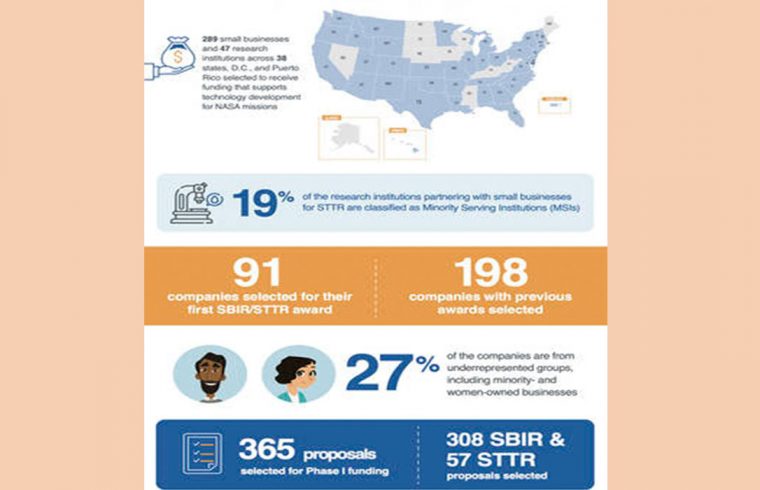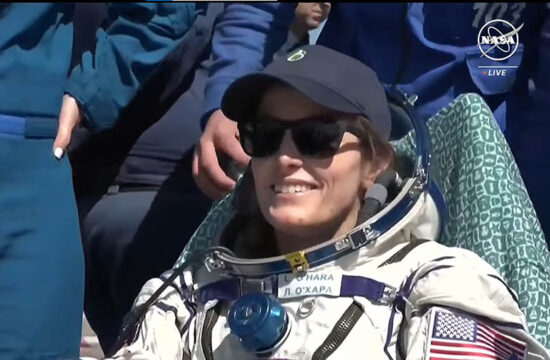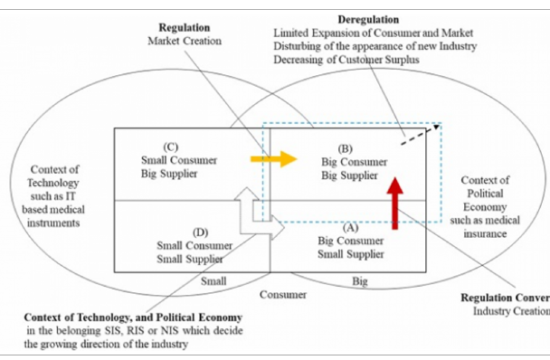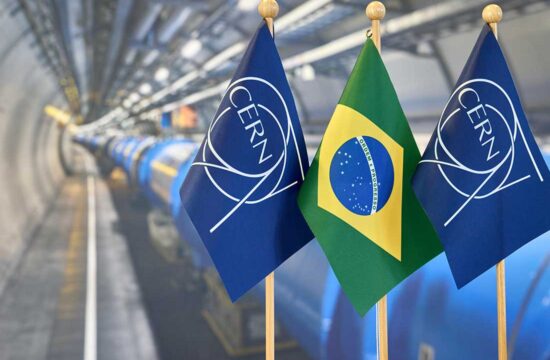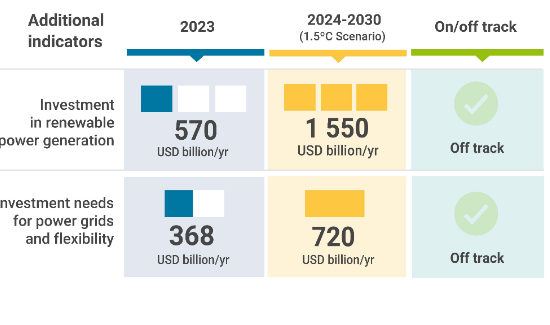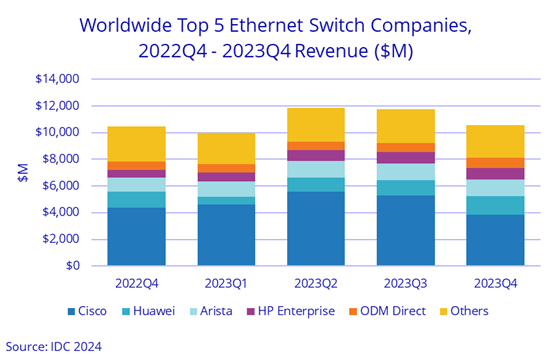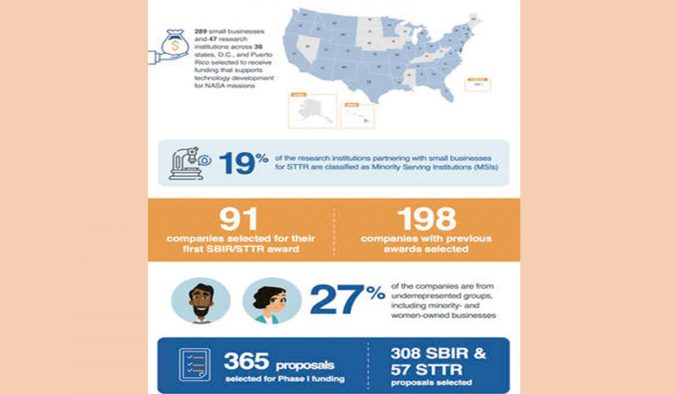
NASA has selected 365 U.S. small business proposals for initial funding from the agency’s Small Business Innovation Research (SBIR) and Small Business Technology Transfer (STTR) program, a total investment of more than $45 million.
“we recognize that small businesses are facing unprecedented challenges due to the pandemic,” said Jim Reuter, associate administrator for the agency’s Space Technology Mission Directorate (STMD). “This year, to get funds into the hands of small businesses sooner, we accelerated the release of the 2021 SBIR/STTR Phase I solicitation by two months. We hope the expedited funding helps provide a near-term boost for future success.”
There are 289 small businesses and 47 research institutions to receive Phase I funding. More than 30% of the awards will go to first-time NASA SBIR/STTR recipients. “We are excited to have a large cohort of new small businesses join the NASA family via the SBIR/STTR program,” Reuter said.
Through the program, NASA works with U.S. small businesses and research institutions to advance cutting-edge technologies. The agency provides up to $125,000 for companies to establish the merit and feasibility of their innovations.
Phase I SBIR contracts are awarded to small businesses and last for six months, while Phase I STTR contracts are awarded to small businesses in partnership with a research institution and last for 13 months. Based on their progress during Phase I, companies may submit proposals to subsequent SBIR/STTR opportunities and receive additional funding.
The small businesses and research institutions selected are as varied as the technologies they will develop. Hailing from 38 states, Washington, D.C., and Puerto Rico, they include women-owned, minority-owned, and veteran-owned small businesses, as well as Minority Serving Institutions (MSIs) and other types of research organizations.
The program is enhancing its efforts to further increase STTR participation by MSIs, including Historically Black Colleges and Universities, by launching two pilot initiatives. Under a cooperative agreement, NASA will work directly with MSI STEM Research and Development Consortium to increase its audience’s participation in STTR. Additionally, the program will collaborate with NASA’s Minority University Research and Education Project to offer research planning grants and incentivize partnerships between MSIs and small businesses. The grants will also let MSIs develop plans for proposing to an STTR solicitation subtopic.
“NASA SBIR/STTR interfaces with entrepreneurs pushing the boundaries of innovation,” said Program Executive Jason L. Kessler. “We’re proud to partner with a diverse group of innovators and expand the reach of NASA across the country.”


